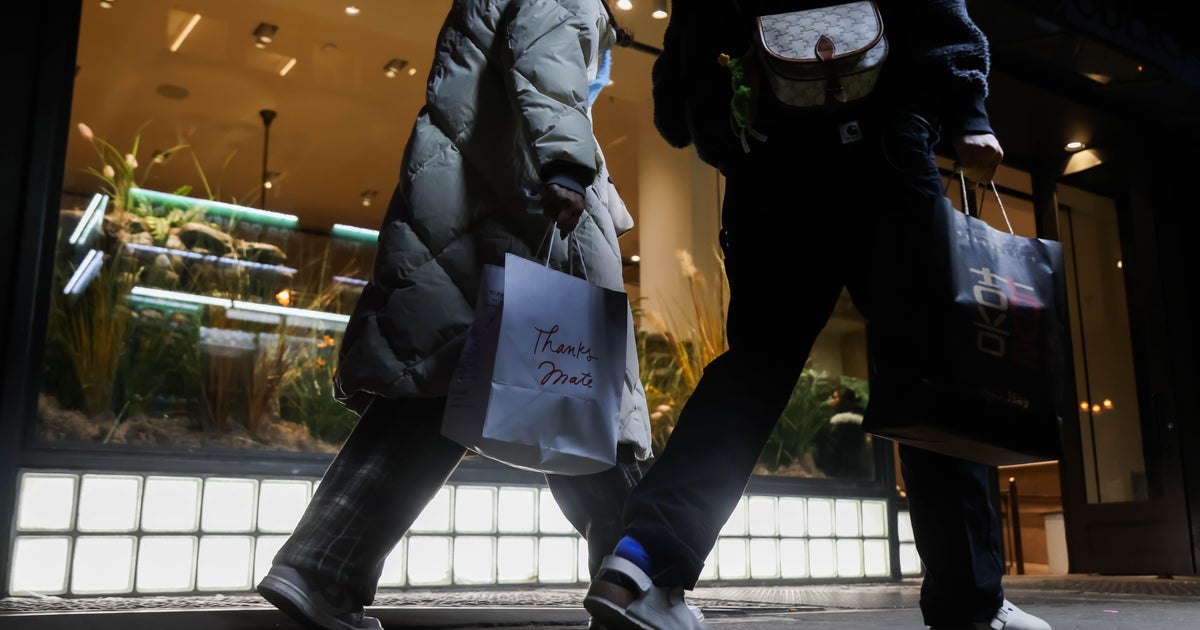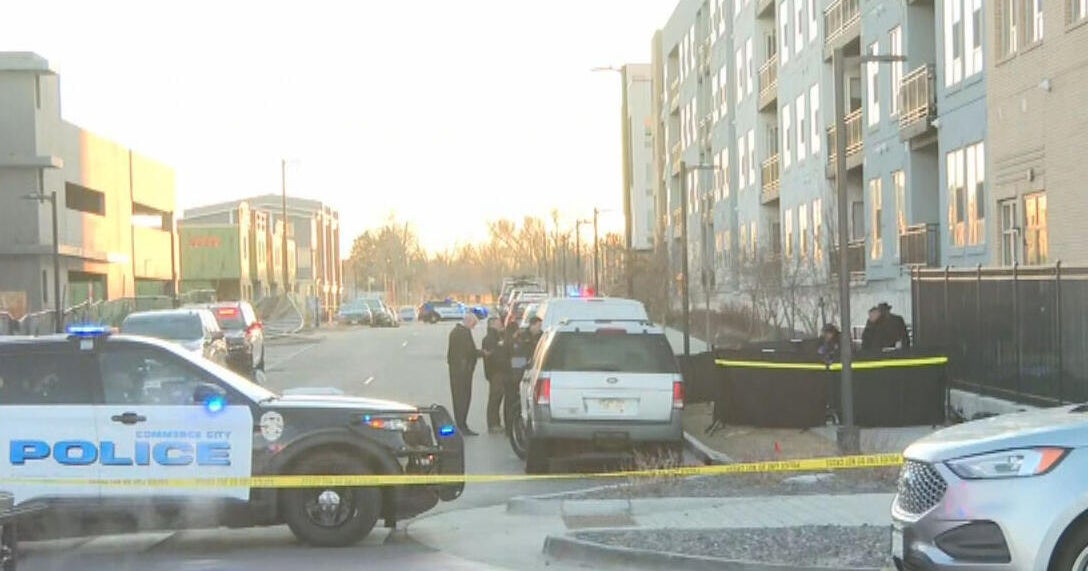Transcript: Secretary Gina Raimondo on "Face the Nation," May 9, 2021
The following is a transcript of an interview with Commerce Secretary Gina Raimondo that aired Sunday, May 9, 2021, on "Face the Nation."
JOHN DICKERSON: We turn now to jobs and the economy and Commerce Secretary Gina Raimondo. She joins us from Providence, Rhode Island. Good morning and happy Mother's Day.
COMMERCE SECRETARY GINA RAIMONDO: Good morning and happy Mother's Day to all the mothers and grandmothers out there.
JOHN DICKERSON: I want to start with the jobs report where all kinds of expectations there would be a million jobs in April. The number came in at 266,000. What do you think happened?
SEC. RAIMONDO: I think we have a long way to go to recover from the pandemic. It's- there are so many Americans still struggling. Eight million fewer jobs than there were pre-pandemic. So, you know, we are working very hard. In fact, we had a meeting with the president on Friday, and that was his direction to us, which is we are making bold moves, but there's a long way to go and we have to be there to help Americans find jobs.
JOHN DICKERSON: Did he say do X, Y or Z to speed this recovery up?
SEC. RAIMONDO: Right now, we're obviously very focused on working with Congress to get the president's jobs package passed and his families package. The reality is we have- we have fallen behind with our investments in the economy and people are still struggling. Women in particular, still struggling to find affordable child care, to break down some of the barriers necessary to find a job, to have access to the skills they need to get a good job.
JOHN DICKERSON: Women in particular, between three and four million, lost jobs in this pandemic. It fell on their shoulders because in most families, women bear the burden of the pandemic more than any others. Is there a particular friction to women getting back into the workforce that you've seen that makes this recovery particularly difficult for women?
SEC. RAIMONDO: Yes, absolutely so- so first of all, women are clustered in the industries that were hit the most, you know, the lower-skilled service jobs, waitresses, working in hotels. And we all know that those industries were hit the hardest. So women were put out of work in greater numbers. But the reality is, as you say, you know, women are more likely to be the caretakers. So lack of affordable child care hits women the hardest. The fact that schools were closed and many still remain closed hits women harder.
JOHN DICKERSON: On unemployment there are a lot of people who believe that the unemployment relief that people are getting is hurting in the job market. Essentially, people are keeping unemployment instead of going to look for work. Is there any discussion within the administration about tweaking that or doing anything to remove that as a- as a barrier to- to jobs?
SEC. RAIMONDO: Obviously, we are monitoring that, but at this point, there's nothing in the data which would suggest that that's the reason people are out of work. By the way, we have to remember that when the president moved to make this happen, this unemployment insurance has been a lifeline, a survival, you know, lifeline for so many Americans. The number one reason now that people aren't going back to work is what you said: fear or if they can't find childcare or schools are still closed. So we'll monitor it as necessary. But right now, we don't think that's because people aren't able to go back to work.
JOHN DICKERSON: In South Carolina and Montana, they're getting rid of unemployment because they think it has this effect on work. And even in Rhode Island, your successor has pushed for legislation that allows people to keep some of their unemployment benefits if they go back to work. So it does seem that a lot of people out there think this really is an impediment to getting people, that unemployment benefits are an impediment to getting people to go look for work. So it does seem there is some evidence out there.
SEC. RAIMONDO: So there's certainly anecdotal evidence. By the way, this is regional, and it's appropriate that governors in different regions would respond to what's going on in their regional labor market. But if you look nationally, wages aren't going up. People are still telling us the number one reason they're not going back to work is- is fear due to the virus. And more people were looking for work last month than the month before. So we are- I am engaged with businesses constantly listening, monitoring. But at the moment, it doesn't seem to be that that's the major impediment
JOHN DICKERSON: In conversations with business, one of the reasons the numbers were down this last month is that so-called supply chain. Manufacturers couldn't get the materials they needed to make what they need. How much of a worry is that to you and how long might that delay a robust economic recovery?
SEC. RAIMONDO: It's a significant factor. It's a significant worry. You see supply chains having been disrupted across the board. An area that I am particularly focused on as commerce secretary is the semiconductor industry. For- for decades, we've allowed America to fall behind and we don't produce enough semiconductors in America. And the president's jobs package calls for 50-billion-dollar investment so we can reshore that supply chain, make semiconductors in America so we're less vulnerable. And, of course, semiconductors are- they're the building blocks of a future economy.
JOHN DICKERSON: Right.
SEC. RAIMONDO: So it's a top priority and something we're working aggressively to address.
JOHN DICKERSON: And- but the timeline on that is very long. I mean, the Intel CEO said that he expects the supply chain to effect- to be- the shortage to last for a couple of years. So this is something that looks like it's going to be with us for a while. And also, it seems to me that the- the president has offered a 50-billion-dollar plan on semiconductors over five years. But TSMC, the Taiwanese manufacturer of chips, is spending 28 billion a year. So this both seems like a very long term solution and also maybe not enough.
SEC. RAIMONDO: Well, our- the 50 billion the president is calling for has to be matched by the private sector. You know, it is my hope that- that the 50 billion would- would be matched by another 50 or 100 billion from the private sector. But the point is we're finally taking action. You know the- President Biden's plan, which- which, by the way, we see a lot of bipartisan support for in Congress, I've had many, many discussions with senators, have- we have to get going. As you say, this will take years. We're behind and it's time to take action and get going on the plan now.
JOHN DICKERSON: As the administration's liaison to business, I wonder what you're hearing about the president's proposed tax increases on corporations. Jamie Dimon, the CEO of JPMorgan Chase, said those taxes were- tax increases were a little crazy. What have you heard from business in your conversations about the future of their taxes being increased?
SEC. RAIMONDO: So in this regard, I have been actually pleasantly surprised. I've talked to nearly 100 CEOs personally, and what they all agree on is they support the president's calls for bold, big infrastructure investments, which are necessary for their competitiveness. They all agree we need investments in broadband, so every American has broadband, major investments in roads and bridges and childcare. The question, of course, is how do you pay for it? And the reality is they- they knew increased corporate taxes were coming. And I have been very pleased by how many CEOs have come out to support the president's plan. So, listen, there'll be room for compromise for sure. And the president will be meeting with members of- of Congress this week hoping to find compromise. But businesses need these investments to be competitive, and that's why there's no time to waste.
JOHN DICKERSON: I want to ask you about a piece of news on the Colonial Pipeline that was hit with a cyber-attack. This supplies roughly 45% of the gas to the East Coast. A, do you think it will have an economic impact? And then, B, what- is this what businesses now have to worry about? Because this isn't the first business to be hit by a ransomware attack.
SECRETARY RAIMONDO: This is what businesses now have to worry about, and I will be working very closely with Ali Mayorkas on this. It's a top priority for the administration. Unfortunately, these sorts of attacks are becoming more frequent. They're here to stay and we have to work in partnership with businesses to secure- secure networks, to defend ourselves against these attacks. As it relates to Colonial, the president was briefed yesterday. It's an all hands on deck effort right now. And we are working closely with the company, state and local officials to, you know, make sure that they get back up to normal operations as quickly as possible and there aren't disruptions in supply.
JOHN DICKERSON: All right, Secretary Gina Raimondo, thank you so much for being with us. Happy Mother's Day, and FACE THE NATION will be back in one minute with the head of the Minneapolis Fed, Neel Kashkari. Stay with us.



